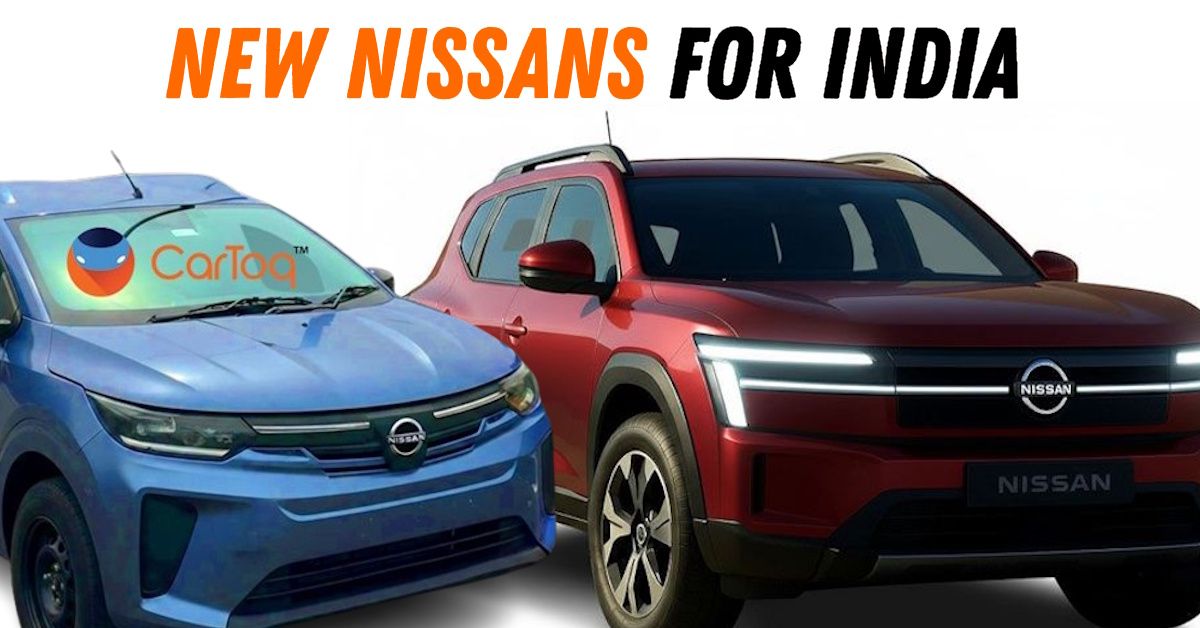Nissan Motor is preparing a substantial push into the market under CEO Ivan Espinosa, planning to launch three new models starting early 2026 as part of a broader turnaround strategy. The move represents a significant shift for a manufacturer that has remained a marginal player despite two decades of presence.
Espinosa, who assumed office in March 2025, positioned the expansion as integral to Re:Nissan, his comprehensive recovery plan aimed at rebooting growth, trimming costs, and repositioning the brand for an electric future. Speaking at the Japan Mobility Show, he emphasised the commitment: leveraging strong engineering capabilities and cost competitiveness remains central to the strategy.
The three planned models will expand Nissan's portfolio beyond the Magnite compact SUV, which has been the company's sole volume driver. The Magnite, launched in December 2020, crossed the 100,000 production milestone in June 2023 and helped Nissan achieve over 500,000 cumulative domestic sales by November 2024. Recent monthly sales figures hover around 1,600 to 1,700 units, with exports forming a substantial portion of total volumes.
The expansion comes amid significant restructuring. Earlier this year, Nissan sold its 51 percent stake in the Renault Nissan Automotive India joint venture to Renault. The Chennai plant, now wholly owned by Renault, will continue manufacturing Nissan-branded models under contract for both domestic sales and exports. The divestment generated 200 million euros in free cash flow for Nissan whilst ensuring manufacturing continuity.
The financial urgency driving these changes is clear. Nissan reported an 88 percent year-on-year profit decline in fiscal 2024, prompting the leadership change that brought Espinosa to the chief executive role. His recovery blueprint prioritises achieving positive operating profitability and free cash flow in the automotive business by fiscal year 2026. Globally, the company is cutting 20,000 jobs by fiscal year 2027 and reducing manufacturing facilities from 17 plants to 10, targeting total cost savings of 500 billion yen.
Product refreshment forms a crucial pillar of the turnaround. At the Japan Mobility Show, Nissan unveiled the third-generation Leaf, offering over 700 kilometres of range, and the Micra EV, developed with Renault in France. These launches signal the company's electric ambitions, though specifics about which electrified models might reach showrooms remain unclear.
The planned model launches will test whether Nissan can finally gain meaningful traction. Previous attempts have struggled against fierce competition in a price-sensitive market dominated by established players. Success will depend on whether the new products offer compelling differentiation and whether the company's revamped cost structure allows competitive pricing without sacrificing margins.
The Chennai manufacturing arrangement with Renault provides industrial stability, but Nissan must rebuild its retail presence and brand perception. Expanding the dealer network, currently targeted to reach 250 outlets by fiscal year 2026-27, forms part of this effort. The company's recent performance shows modest growth, with consolidated sales reaching 10,500 units in September 2025, marking 9.3 percent year-on-year growth.
Espinosa confirmed that talks with Honda Motor, which collapsed in February 2025 after disagreements over terms that would have made Nissan a wholly owned Honda subsidiary, have been revived. The discussions now focus on collaboration in software and vehicle development rather than full integration. Since August 2024, both companies have conducted joint basic research on software technologies, exploring opportunities to standardise basic software for advanced vehicle control.
The Honda-Nissan software collaboration could yield vehicles featuring shared systems by the late 2020s, potentially enabling software-defined vehicles that improve performance through internet-based updates. This technical partnership might reduce development costs significantly, as software complexity is estimated to increase tenfold between 2020 and 2030.
Espinosa described the company's progress as "prudent confidence", stating the restructuring remains on schedule with positive early market feedback. His pragmatic approach acknowledges the complexity of the global environment: whatever brings value to customers and to Nissan will be explored.
Whether this represents a genuine breakthrough or another false start will become apparent as the new models reach showrooms. Espinosa's track record will be measured not just by product launches but by sustained sales growth and profitability in a market where Nissan has underperformed for far too long.
© 2025 Cartoq Intelligence Platform | Privacy Policy | Terms of Use












